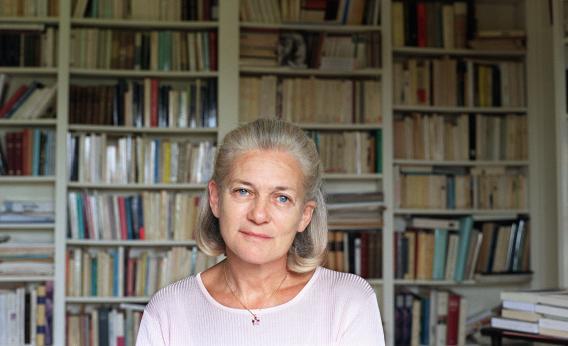It’s hard to come up with much better evidence for the taboo around criticizing the oppressive nature of competitive mommy devotion than Janice D’Arcy’s review of French feminist Elisabeth Badinter’s new book The Conflict: How Modern Motherhood Undermines the Status of Women. D’Arcy takes it as a given that there’s a protective shield around time-intensive parenting practices to keep anyone from observing out loud that it’s antithetical to feminism to demand such high levels of self-abnegation from women. She fears that anyone who breaches the taboo around pointing this out can expect to face a sea of angry people hellbent on silencing the errant observer. As I recently learned when arguing that the promotion of placenta-eating demotes new mothers to four-legged animals, these angry critics don’t really have an argument, but simply believe it’s out of line for a woman to criticize another’s “choices.” The problem is that said choices are usually made on pain of being considered bad, unnatural mothers if you opt out of them and choose to keep a bit of your life and body for yourself. I don’t know if Badinter mentions placenta-eating in her new book, but I’d really love to hear her thoughts on it.
I’m really glad someone has written this book, even though I expect it to be rejected by people who believe labeling a behavior a “choice” exempts it from analysis or criticism. I suppose it could be a coincidence that lengthy breast-feeding and attachment parenting that interferes heavily with maintaining a career came into style right as it became passé to pressure women to downplay their ambitions for the sake of men, but it just seems highly unlikely. One thing I do know is that the more conservative women of my acquaintance don’t feel the same pressure to breast-feed until their kids are talking or to keep their kids by their side at all times, even bedtime. It seems that if you live in social circles where it’s simply expected that you curtail your professional ambitions and do most of the domestic work so as to avoid emasculating your husband, the psychic need to create elaborate parenting theories to achieve the same result—woman at home, tied to the kitchen—simply vanishes. Strange coincidence, indeed.
No one should have expected the path to true domestic equality for women to be an easy one. The notion that being female means self-sacrifice and always putting someone else’s needs before your own isn’t going to be something we can shrug off in a generation after centuries of reinforcement. In retrospect, it should have been predictable that once it became politically incorrect to expect women to give up their independence for men, children would be the next category of people whose neediness trumps women’s desires for self-actualization. The feminine mystique is probably going to morph a number of times before feminism can finally kill it off.
